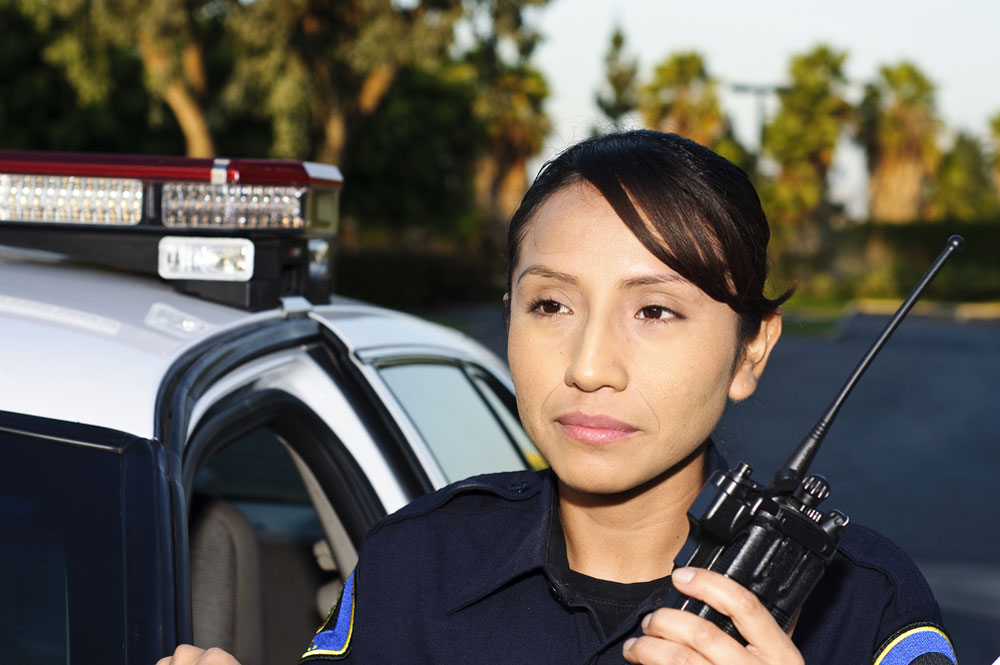Police Plagued by Sleep Problems

Get the world’s most fascinating discoveries delivered straight to your inbox.
You are now subscribed
Your newsletter sign-up was successful
Want to add more newsletters?

Delivered Daily
Daily Newsletter
Sign up for the latest discoveries, groundbreaking research and fascinating breakthroughs that impact you and the wider world direct to your inbox.

Once a week
Life's Little Mysteries
Feed your curiosity with an exclusive mystery every week, solved with science and delivered direct to your inbox before it's seen anywhere else.

Once a week
How It Works
Sign up to our free science & technology newsletter for your weekly fix of fascinating articles, quick quizzes, amazing images, and more

Delivered daily
Space.com Newsletter
Breaking space news, the latest updates on rocket launches, skywatching events and more!

Once a month
Watch This Space
Sign up to our monthly entertainment newsletter to keep up with all our coverage of the latest sci-fi and space movies, tv shows, games and books.

Once a week
Night Sky This Week
Discover this week's must-see night sky events, moon phases, and stunning astrophotos. Sign up for our skywatching newsletter and explore the universe with us!
Join the club
Get full access to premium articles, exclusive features and a growing list of member rewards.
Forty percent of police officers suffer from sleep disorders that may pose a risk to their health, safety and work performance, a new survey shows. Of the survey respondents, about 46 percent also reported nodding off or falling asleep behind the wheel.
Most of the sleep disorders had not been diagnosed as such, the researchers found.
Researchers asked police officers to participate in either an online or an onsite screening. A total of 3,693 officers completed the online screening survey, while 1,264 subjects from a municipal police department or a state police department participated in the onsite survey. Most of the participants, 97 percent, were from the United States, with 3 percent from Canada.
The findings showed that 40 percent of the nearly 5,000 participants screened positive for at least one type of sleep disorder. The most common disorder was obstructive sleep apnea, affecting 1,666 officers screened. The second most common disorder was moderate to severe insomnia, which 281 participants screened positive for, followed by shift-work disorder. Of the 269 officers who tested positive for shift-work disorder, 14.5 percent worked the night shift.
The findings showed that positive screening for any sleep disorder was associated with an increased risk of self-reported health problems. Among those with a sleep disorder, 10.7 percent reported having depression, compared with 4.4 percent of those without a sleep disorder who reported depression.
Of the sleep-disorder group, 20 percent reported falling asleep while driving, compared with 7.9 percent of the subjects who didn't have a sleep disorder. Among the officers who reported nodding off while driving, 56.9 percent reported falling asleep while driving at least one-to-two times a month, while 13.5 percent reported falling asleep while driving at least one-to-two times a week.
"Police officers frequently work extended shifts and long work weeks, which in other occupations are associated with increased risk of errors, unintended injuries, and motor vehicle crashes," study researcher Shantha M. W. Rajaratnam of Brigham and Women's Hospital in Boston and colleagues wrote in the Dec. 21 issue of the Journal of the American Medical Assocation (JAMA).
Get the world’s most fascinating discoveries delivered straight to your inbox.
"According to data through the year 2003, more officers are killed by unintended adverse events than during the commission of felonies. It has been hypothesized that fatigue — likely due to reduced duration and quality of sleep and untreated sleep disorders — may play an important role in police officer unintentional injuries and fatalities," the researchers wrote.
The findings also showed that, compared with participants with no apparent sleep disorder, police officers who screened positive for any sleep disorder were more likely to report making important administrative errors, such as committing safety violations due to fatigue, having uncontrolled anger toward a citizen or suspect, incurring citizen complaints, or falling asleep during meetings.
"As a matter of public safety, this study illustrates that the public at large may also be at risk when police officers are impaired in performing their duties because of sleep deprivation or an untreated sleep disorder," wrote Michael A. Grandner and Allan I. Pack, both of the University of Pennsylvania, in an editorial accompanying the JAMA paper. "Now, the question is what police departments will do with this new information."
The researchers noted that further studies are needed to determine whether prevention, screening and treatment programs in occupational settings will reduce these risks.
You can follow LiveScience writer Remy Melina on Twitter @remymelina. Follow LiveScience for the latest in science news and discoveries on Twitter @livescience and on Facebook.
 Live Science Plus
Live Science Plus










